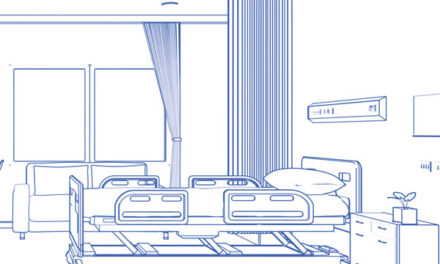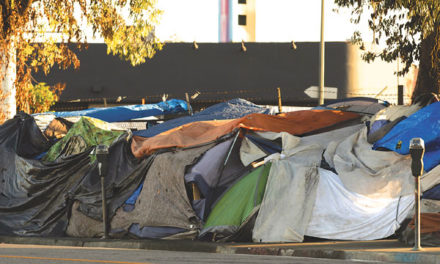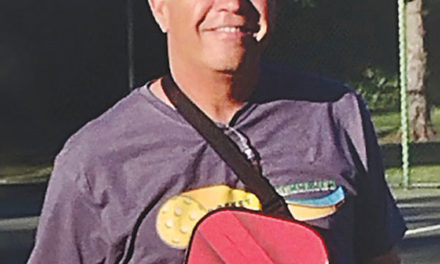Letters From Our Readers
‘Every Day, I See Human Beings Living in Their Own Filth’
June 2019
Editor’s Note: Inside Publications received an unprecedented response to last month’s Publisher’s Desk by Cecily Hastings which discussed the Sacramento homeless problem and the documentary “Seattle Is Dying.” The following letters reflect the urgency and anguish felt by our readers. The letters are edited for space.
I’m dismayed that we continually throw money at this “homeless” problem when, in reality, it is largely a drug and mental health problem. Hopefully, our elected leaders will see the importance of treating it as such.
Joe Selewicz
Thank you for your powerful editorial. Eighty-thousand Sacramento voters receive your publication, so you have influence. I watched “Seattle Is Dying,” and it is a preview of coming events for Sacramento. A large portion of the millions being spent on Sacramento homeless should go to creating jobs, such as paying homeless people to clean up the city. Jobs would give them dignity and income to rent a room and begin productive lives. Good luck in your efforts to bring sanity and common sense to solving this cultural cancer.
R. Baskerville
I work with Sacramento Regional Parks and am involved in the cleanup of the homelessness problem. The rise of homelessness and the downfall of societal institutions to deal with the problem have become more dramatic. As a society we have taken away the ability of police to do their jobs, but we have also taken away places where this population could find assistance.
Our politicians have used a misguided sense of righteousness to dismantle the infrastructures we had to deal with drug abuse and mental illness. Every day I see human beings living in their own filth, unable to think or act coherently.
Randy Hart
Bless you for so thoughtfully covering the subject of homeless! There is a group of us in Land Park trying to keep our neighborhood from falling into a total state of chaos. We are trying to make changes but have nothing to back us up. It’s getting bad. I worry about the Broadway Corridor, Freeport Boulevard, Land Park and Curtis Park. I am most disappointed in Mayor Darrell Steinberg. I voted for him because I thought he understood the problem. Now it is clear his “No Barriers” approach is leaving our city in shambles.
Marta Goetz
Bless you for so thoughtfully covering the subject of homeless! There is a group of us in Land Park trying to keep our neighborhood from falling into a total state of chaos. We are trying to make changes but have nothing to back us up. It’s getting bad. I worry about the Broadway Corridor, Freeport Boulevard, Land Park and Curtis Park. I am most disappointed in Mayor Darrell Steinberg. I voted for him because I thought he understood the problem. Now it is clear his “No Barriers” approach is leaving our city in shambles.
Marta Goetz
When I moved my studio to Midtown three years ago, I swore I wouldn’t lock my doors. I used to come with my church and feed the homeless. Now my story has changed. I am so grateful I didn’t purchase in Sacramento proper. I now keep the studio doors locked. I’ve had to call the police twice. I wish more people were willing to deal with the situation honestly and realize the harm it has already caused our city—not to mention what is yet to come.
Anne Sacco
I have been a resident of the Land Park area of Sacramento since the early 1980s and have witnessed drug addicts and dealers on the streets in plain sight. In Land Park, we’ve experienced an increase of car break-ins and porch thefts. I have had two porch thefts.
Today I saw an apparent homeless opportunist, a young man on a bicycle, casing my block. I was in my driveway, looked directly at him, he looked back with an expression that seemed to say, “I know you know what I’m doing, but there’s nothing you can do to stop me.” He rode on, looking down each driveway.
It does not seem that the city is taking action to transition people to appropriate services based on specific situations. Police and support services are inadequately staffed to carry out related functions.
Shirley Hazlett
I enjoy your publication but cringe when I read your Publisher’s Desk. I am usually rewarded with a dose of hate against immigrants, African-Americans, the disabled, the working poor, the homeless and any group that might advocate for them.
Your recent issue was no exception. You managed to conflate the homeless with crime. You paint the homeless with a broad-brush of criminality and lament the fact that law enforcement is not able to arrest them all and throw them in jail. The makers of the movie you cite, “Seattle is Dying,” apparently did not bother to speak to the “homeless” they filmed.
The only true solution for homelessness is a good education system, a good health care system, and an economy that values labor as much as it values capital. Let’s not turn a bad situation worse by criminalizing the victims of our cruel economic and social policies.
Hugo I. Vera
The neighborhood of Land Park is under siege by drug-addled homeless who live on the streets and in the park. They break into our homes, cars, garages and sheds, defecate, urinate and vomit wherever they choose and shoot up in plain sight. We regularly experience issues of aggressive confrontations at our homes, stores, gas stations, in the park, restaurants—everywhere we live, recreate and shop.
Now we have this report from a neighbor who posted a photo on social media of a transient masturbating next to a pile of porn, 150 feet away from a school. He is on Broadway every day. I have seen him.
I’ve lived in Land Park in the same home for 30 years, and my husband has lived here since he was a child. Never have we had this level of lawlessness, theft, property crimes, vile and heinous behavior, and children threatened by homeless drug addicts, while the city does little and appears impotent.
These people need medical, mental and physical health assessments, and direction to proper services. Some should be incarcerated. And if you need temporary housing, bring in trailers, Tough Sheds, tents and toilets. If our military can live in tents and temporary structures when deployed, so can the homeless. This is not a housing crisis. It is a drug crisis, and needs to be addressed as such.
Katy Grimes
When I worked in health care for the homeless, we went by the 40-40-20 rule: Twenty percent could be rehabilitated with a hand up, but 40 percent were mentally ill and 40 percent were criminals. The last two groups cost too much and were often chronic not amenable to rehabilitation. The answer is a new kind of “jail.” It would be more like a refugee camp. It can satisfy liberals if there is more freedom than a regular jail. And it can satisfy conservatives if the costs per day are significantly less than jail.
Guests who can’t behave need to go to a real jail. Unless Sacramento learns how to apply “tough love” solutions, our quality of life will continue to slowly spiral downwards.
Mike Thomas
I was surprised when I read your column on “Seattle Is Dying.” I assumed it would take the liberal slant that Sacramento isn’t doing enough to help the homeless and that we need to throw more money at the problem. I’m happy to learn City Councilman Jeff Harris is taking a proactive approach. We can no longer ignore what’s happening. Seattle, Portland, San Francisco, San Jose, Los Angeles and San Diego are all declining as homeless populations grow out of control. We can turn this around, but first we must admit we have a problem.
Theresa Wells
When I saw “Seattle Is Dying,” I was appalled to realize what was happening in one of our most beautiful cities. It is hard and depressing to watch, yet we must watch it. Kudos to you for bringing this issue front and center.
You did a very important and brave service by confronting readers with the reality of what can happen to our city. Let’s be clear. An overwhelming number of people living on the streets are not “the homeless.” They are drug addicts who, sadly, have made very poor choices.
The term “homeless” tugs at our hearts. But words matter. Let’s be real and call this drug epidemic what it is.
Sandra Cleary













